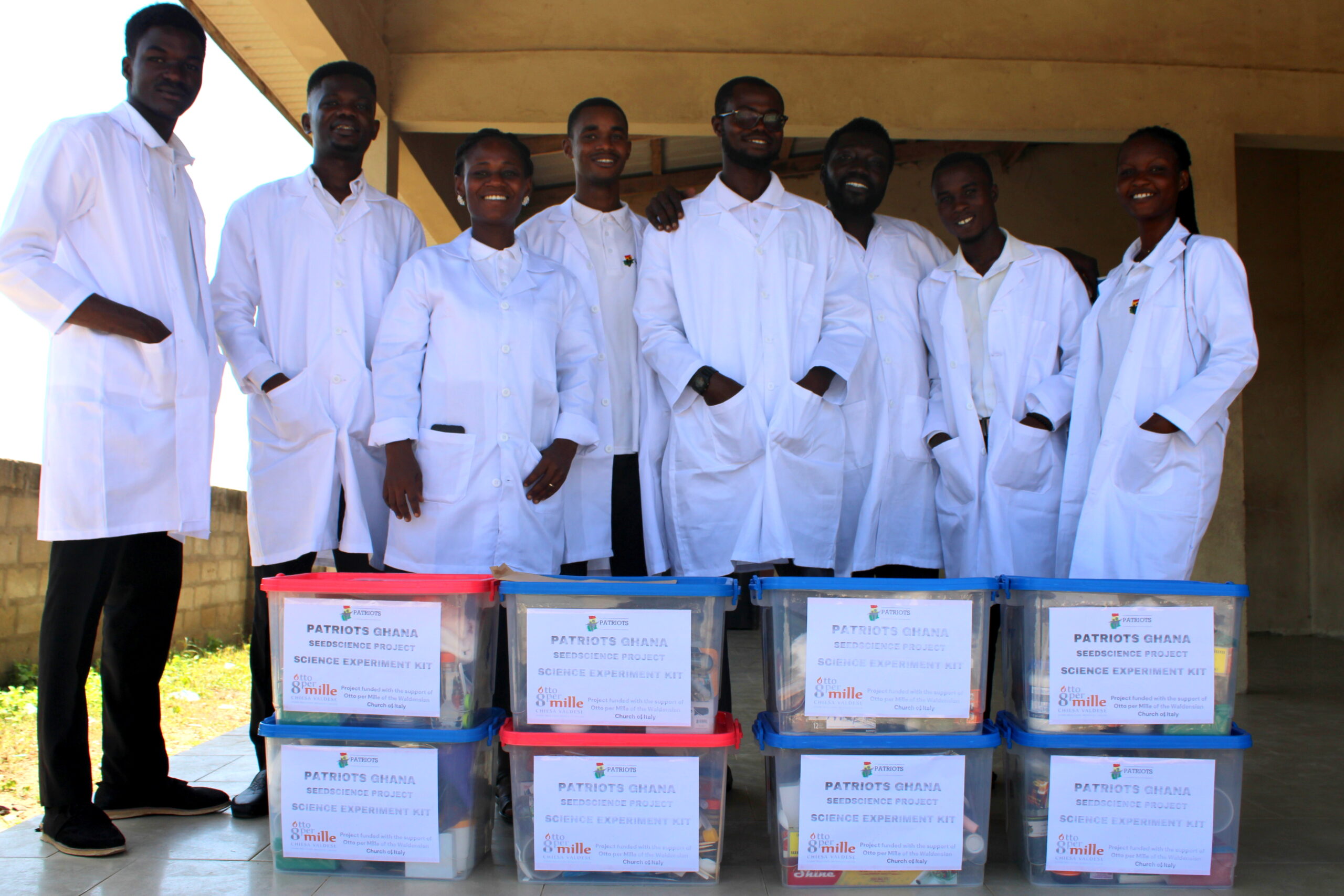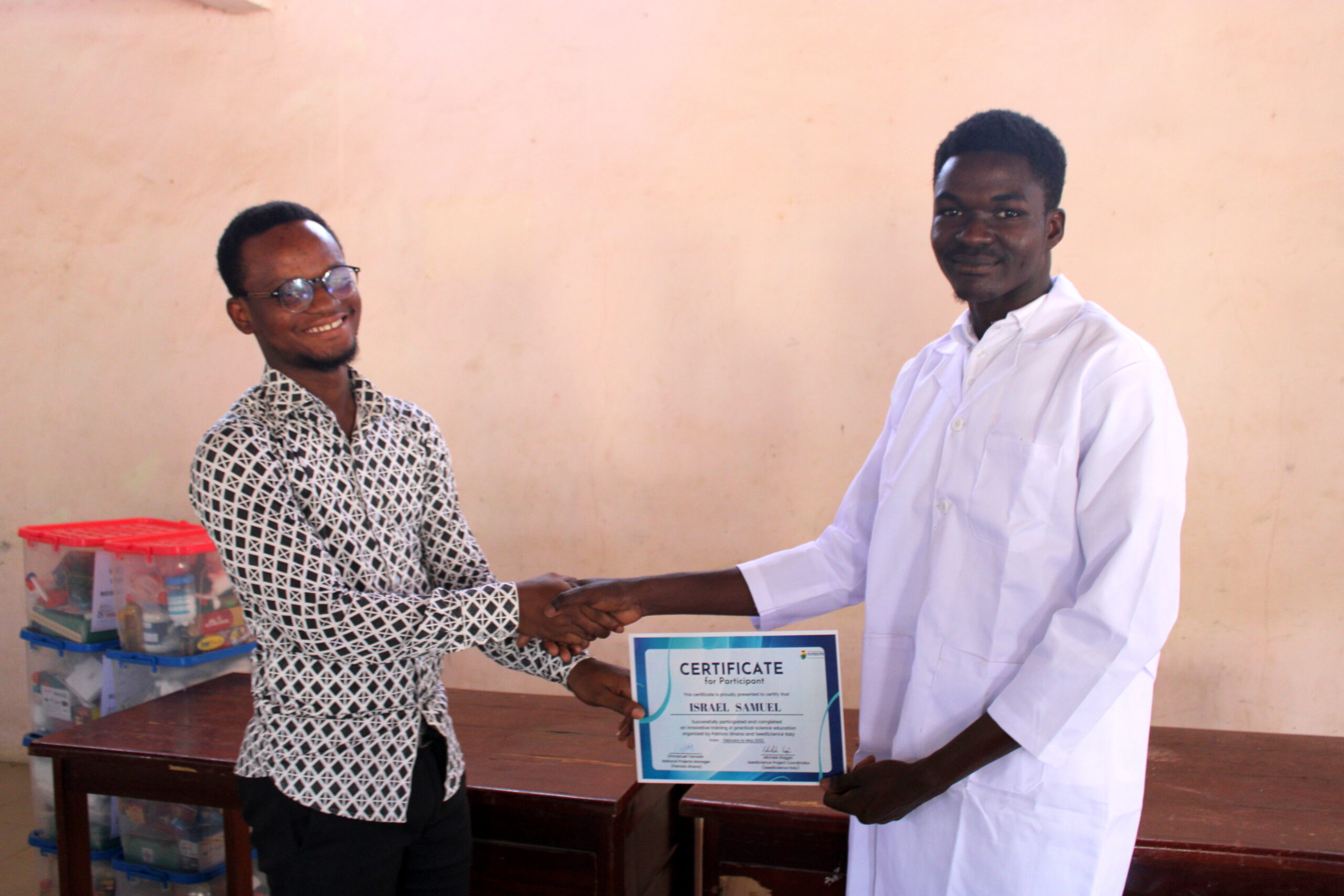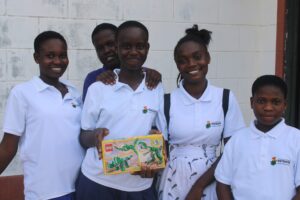OUR PROJECTS
Our Project
SeedScience

The goal of the SeedScience project is to empower teachers as leading change agents through practical science education and innovative experiential learning activities, utilizing affordable local materials. We enhance the existing science curriculum, making it more relatable to students, and create opportunities for science lessons to spark interest in solving community problems.
The SeedScience project is an innovative long-term initiative aimed at improving science education in Ghana and other African countries. We are dedicated to developing training models that are scalable and adaptable to the diverse cultures and needs of different regions. In partnership with SeedScience, based in Italy, the training of science teachers began in Ghana and has now expanded to Kenya, Uganda, and Tanzania.

The training aims to introduce local teachers to a different teaching method that helps students develop critical thinking skills and increase their curiosity about science and the world around
them.
Patriots Ghana believes that training Ghanaian and other African teachers on practical science experiments is crucial for several reasons:
- Enhancing Teaching Quality: Practical science experiments help teachers deliver more engaging and effective lessons. Hands-on activities make complex scientific concepts more accessible and easier for students to understand. This training helps teachers improve their teaching methods and foster a deeper understanding of science among students.
- Encouraging Critical Thinking and Problem-Solving Skills: Practical experiments encourage students to think critically, ask questions, and solve problems. By equipping teachers with the skills to conduct experiments, students can engage in experiential learning, which promotes these essential skills.
- Inspiring Student Interest and Engagement: Science can often seem abstract and challenging, but practical experiments make it tangible and exciting. Trained teachers can
spark students’ curiosity and interest in science, encouraging them to pursue further studies and careers in STEM fields. - Bridging the Gap Between Theory and Practice: Many students struggle with science subjects because they find the material too theoretical. Practical experiments bridge this
gap by demonstrating real-world applications of scientific principles. This helps students see the relevance of what they are learning and how it applies to everyday life. - Addressing Resource Constraints: In many African schools, especially in rural areas, there is a lack of resources for conducting practical science experiments. Training teachers to use locally available materials creatively and effectively can overcome these challenges and ensure that all students have the opportunity to experience hands-on learning.
- Improving Student Performance: Studies have shown that students who engage in practical science activities often perform better academically. Training teachers to incorporate experiments into their lessons can lead to improved student performance in science subjects, as students gain a better understanding and retain information more effectively.
- Promoting Gender Equity in STEM: By making science more engaging and accessible, practical experiments can help to reduce gender disparities in STEM education. Female students, in particular, may feel more encouraged to participate and excel in science when they see it as a dynamic and interactive field.
- Preparing Students for Future Careers: Practical skills are essential for many STEM careers. Training teachers to provide hands-on experiences in the classroom equips students with the skills they need for future academic and career opportunities in science and technology.
- Fostering a Culture of Scientific Inquiry: When teachers are skilled in conducting experiments and encouraging inquiry, they help cultivate a culture of curiosity and scientific inquiry among students. This culture is vital for fostering innovation and progress in any society. An increased interest in science education is undoubtedly necessary for Ghana’s development as expressed by the former president of Ghana, His Excellency John Dramani Mahama.
Here are the latest updates on the ongoing activities related to the SeedScience program
PROJECT UPDATES
Girls In STEM Career Day: Empowering the Next Generation of STEM Leaders
On August 11, 2023, Patriots Ghana’s Girls in STEM (GIS) Mentorship Program hosted a dynamic and inspiring “Career Day” for…
Girls In STEM Robotics Challenge
The Girls in STEM Mentorship Program continues to inspire and empower young girls to break barriers and explore the exciting…
Seedscience Project
Seedscience Project The SeedScience project is developed as an innovative intervention for improving science education in Ghana. Our goal is…




